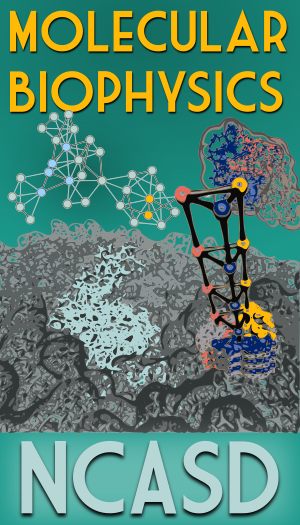Molecular Biophysics

From the very large to the very small, biological systems are characterized by complex patterns of interdependencies that are essential for survival and function. A major thrust of our research is on studying the emergence and persistence of complex structure in biological systems at the molecular level, and in identifying novel approaches to characterize variation in molecular structure and dynamics that are of potential functional relevance. This includes not only the emergence of structures that are biologically functional (e.g., enzymatic complexes, lipid bilayers), but also those that are pathological (e.g., the amyloid fibrils that lead to Lewy body dementia, or the unstructured protein aggregates responsible for cataract). Much of our work leverages the adaptation of modeling approaches originally developed for social systems to structure and interaction among molecules. We also work on comparative modeling and analysis of protein ensembles, with the goal of identifying enzymes with novel function (e.g., in the context of enzyme discovery), detecting evolutionary trends (e.g., in response to extreme environments, or pathogen response to a novel host), or characterizing the relationship between sequence variation and function (e.g., for protein engineering).
